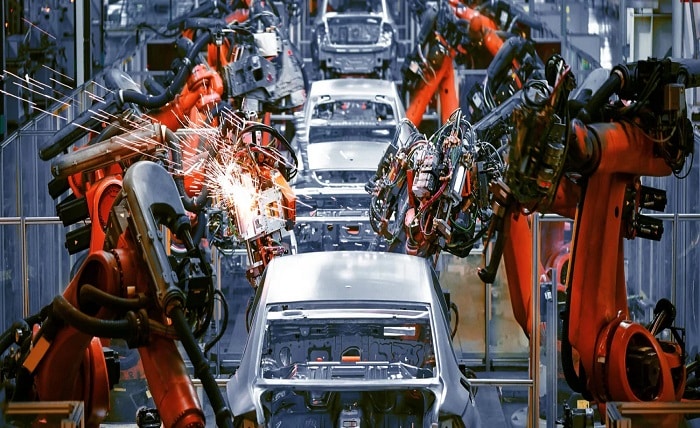The Future of Transportation: Innovations in Electric Vehicle Manufacturing

The transportation landscape is undergoing a seismic shift as electric vehicles (EVs) take center stage in the quest for sustainable mobility. With increasing environmental concerns and advancements in technology, the manufacturing of electric vehicles is evolving rapidly. Innovations in this field not only enhance the performance and accessibility of EVs but also play a crucial role in reducing carbon emissions and combating climate change.
In this blog post, we will explore some of the most exciting innovations in electric vehicle manufacturing that are shaping the future of transportation.
Advancements in Battery Technology
One of the most critical components of electric vehicles is the battery. Innovations in battery technology are making EVs more efficient and affordable. Traditionally, lithium-ion batteries have dominated the market, but researchers are now exploring alternatives like solid-state batteries. Solid-state batteries offer a higher energy density, faster charging times, and increased safety by eliminating the flammable liquid electrolyte used in conventional batteries.
Another significant development is the recycling of battery materials. As the demand for electric vehicles grows, so does the need for sustainable battery production. Companies are investing in recycling technologies that recover valuable materials like lithium, cobalt, and nickel from used batteries. This not only reduces waste but also lessens the environmental impact of mining new materials.
Lightweight Materials for Enhanced Efficiency
Reducing the weight of electric vehicles is essential for improving their efficiency and range. Innovations in materials science have led to the development of lightweight alternatives to traditional metals. Manufacturers are increasingly using composites, aluminum, and advanced high-strength steels to create lighter vehicle structures without compromising safety.
These materials not only contribute to better energy efficiency but also enhance vehicle performance. For example, lighter vehicles require less energy to accelerate, resulting in improved range and performance. As manufacturers continue to innovate with lightweight materials, we can expect to see electric vehicles that are not only more efficient but also more agile and fun to drive.
Smart Manufacturing Processes
The integration of smart manufacturing processes is revolutionizing how electric vehicles are produced. Advanced technologies such as artificial intelligence (AI), the Internet of Things (IoT), and robotics are streamlining production and improving quality control. Manufacturers can now collect and analyze data in real time, allowing them to optimize processes and reduce waste.
For instance, AI-driven predictive maintenance systems can anticipate equipment failures before they occur, minimizing downtime and ensuring smooth production lines. Additionally, robotics are being used for tasks such as welding and painting, improving precision and efficiency. This shift towards smart manufacturing not only enhances productivity but also contributes to a more sustainable manufacturing process by reducing energy consumption and material waste.
Sustainable Supply Chains
As the demand for electric vehicles continues to grow, the significance of sustainable supply chains becomes increasingly critical. Innovations in supply chain management are essential for ensuring that the materials used in EV manufacturing, including batteries, are sourced responsibly. Manufacturers are placing greater emphasis on transparency and traceability within their supply chains to mitigate the environmental impact associated with material sourcing.
This effort involves forming partnerships with battery suppliers and other vendors who prioritize ethical mining practices and are dedicated to reducing their carbon footprints. Furthermore, companies are actively exploring local sourcing alternatives to minimize transportation-related emissions. By developing more sustainable supply chains, manufacturers can align their production processes with the rising demand for environmentally friendly practices, ultimately contributing to a greener automotive industry.
Vehicle-to-Grid Technology
Vehicle-to-grid (V2G) technology is another innovative development in the electric vehicle sector. This technology allows electric vehicles to not only draw energy from the grid but also return it when needed. By enabling two-way energy flow, V2G technology can help stabilize the grid during peak demand periods and optimize the use of renewable energy sources.
This innovation offers significant benefits for both consumers and utility companies. EV owners can potentially earn money by selling excess energy back to the grid, while utilities can reduce reliance on fossil fuels and enhance grid resilience. As V2G technology matures, it could play a crucial role in the transition to a more sustainable energy landscape.
Autonomous Electric Vehicles
The future of transportation is also intertwined with the rise of autonomous electric vehicles. Innovations in artificial intelligence and machine learning are enabling the development of self-driving technology that promises to revolutionize how we travel. Electric vehicles are often seen as the ideal platform for autonomous driving due to their advanced sensors and software capabilities.
As manufacturers invest in autonomous driving technology, we can expect to see a safer and more efficient transportation system. Autonomous electric vehicles have the potential to reduce traffic congestion, lower accident rates, and provide mobility solutions for those unable to drive. This integration of electric and autonomous technologies will significantly shape the future of urban transportation.
In Conclusion
The future of transportation is being redefined by innovations in electric vehicle manufacturing. From advancements in battery technology and lightweight materials to smart manufacturing processes and sustainable supply chains, the industry is poised for a transformation that promises to enhance efficiency, reduce emissions, and promote sustainable mobility.
As these innovations continue to unfold, electric vehicles will play an increasingly vital role in creating a greener, more sustainable future for transportation. Embracing these changes will not only benefit the environment but also improve the overall driving experience for consumers worldwide.




